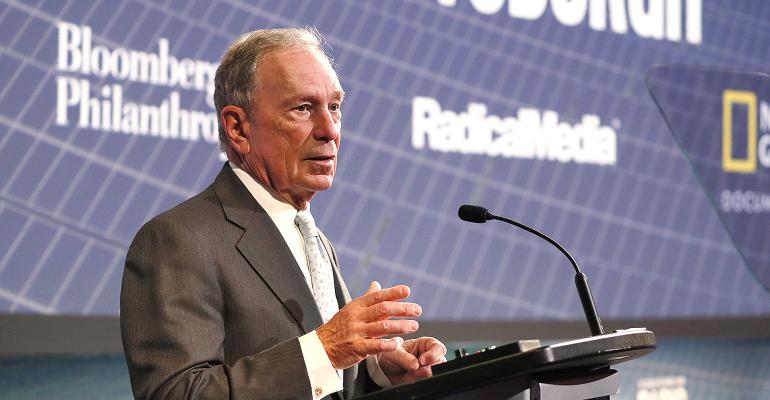By Joni Youngwirth
Although it may not always be top of mind, charitable giving is definitely on the rise. In fact, according to Charity Navigator, approximately $410 billon was given to charity in 2017. This astounding number reflects a record level and a 5.2% increase over 2016 numbers. Furthermore, “giving has increased in current dollars every year since 1977” (excluding 1987, 2008 and 2009).
Some advisors have even made it their mission to attract clients who are charitably inclined. To me, it speaks to the unique position that advisors can take in supporting the charitable giving goals of their clients.
High-net-worth clients: Ready to share the wealth
Many of those who are considered “ultra-wealthy” put their money where their mouths are when it comes to philanthropy—I’m thinking Warren Buffet, Bill and Melinda Gates, and Michael Bloomberg, just to name a few. You might see this same inclination in your high-net-worth clients, who may define wealth as the ability to give money away. But with so many giving opportunities at their fingertips (and with so much to give), they likely need guidance in choosing exactly where their money should go.
The degree to which advisors support their clients in this area varies widely. But if you’d like to play a bigger role, I think a useful place to start is by considering your own mortality. What would you like to do with your own nest egg? Where would you like your money to go after you pass? In terms of giving, what would make you feel “successful”? And what influences your decisions about what to give and whom to give it to? To be sure, these are difficult questions. But I think you just might find that by exploring your personal orientation and thought process, you will get a pretty clear window into the minds of your high-net-worth clients.
Millennials: Ready to give what they’ve got
Recently, I discovered that both my millennial children independently set up automatic withdrawals from their respective payroll systems to contribute to a charity near and dear to our family’s heart. I have to admit, I was a bit surprised—but maybe I shouldn’t have been. After all, this generation is known as a purposeful one, seeking to achieve a better work-life balance and jobs that have personal and professional meaning. And, according to a recent article in Forbes, they are becoming known for reinventing philanthropy. Again, if we think about it, we shouldn’t be surprised. Millennials currently make up about one-third of the workforce, and this number is growing every year. As they advance in their careers and their disposable income increases, so will their impact on philanthropy.
When it comes to charitable planning (or any financial planning, really), it’s important for advisors to always be cognizant that millennials are bound to behave in different ways than their older clients. For example, millennials grew up with technology and don’t hesitate to leverage it. But this also means they are receiving vast amounts of digital information. Help your next-gen clients break down this information overload so they can make meaningful—and smart—choices with their money.
With this group, there’s also the issue of the transfer of wealth to consider. Some estimate that about $40 trillion will be handed down to the next generation by 2050. So, right now, your job may be to advise your younger clients on how to responsibly balance their student loan debt and their charitable giving goals. But keep in mind that these same clients may be poised to inherit the wealth of their baby boomer parents. If you can help them meet their charitable goals now, they will be sure to look to you again when this shift takes place.
A new definition of success
Across generations, a new definition of success seems to be emerging: the desire to give money away despite how much or how little one has. Knowing how increasingly important charitable giving is to clients, I encourage you to evaluate what you can do to help them with this facet of planning—one that can deeply influence how successful they feel. Of course, charitable giving isn’t important to all your clients. But there is enough data that shows that giving back is a long-term trend that advisors need to be a part of now and in the future.
Joni Youngwirth is managing principal, practice management at Commonwealth Financial Network





